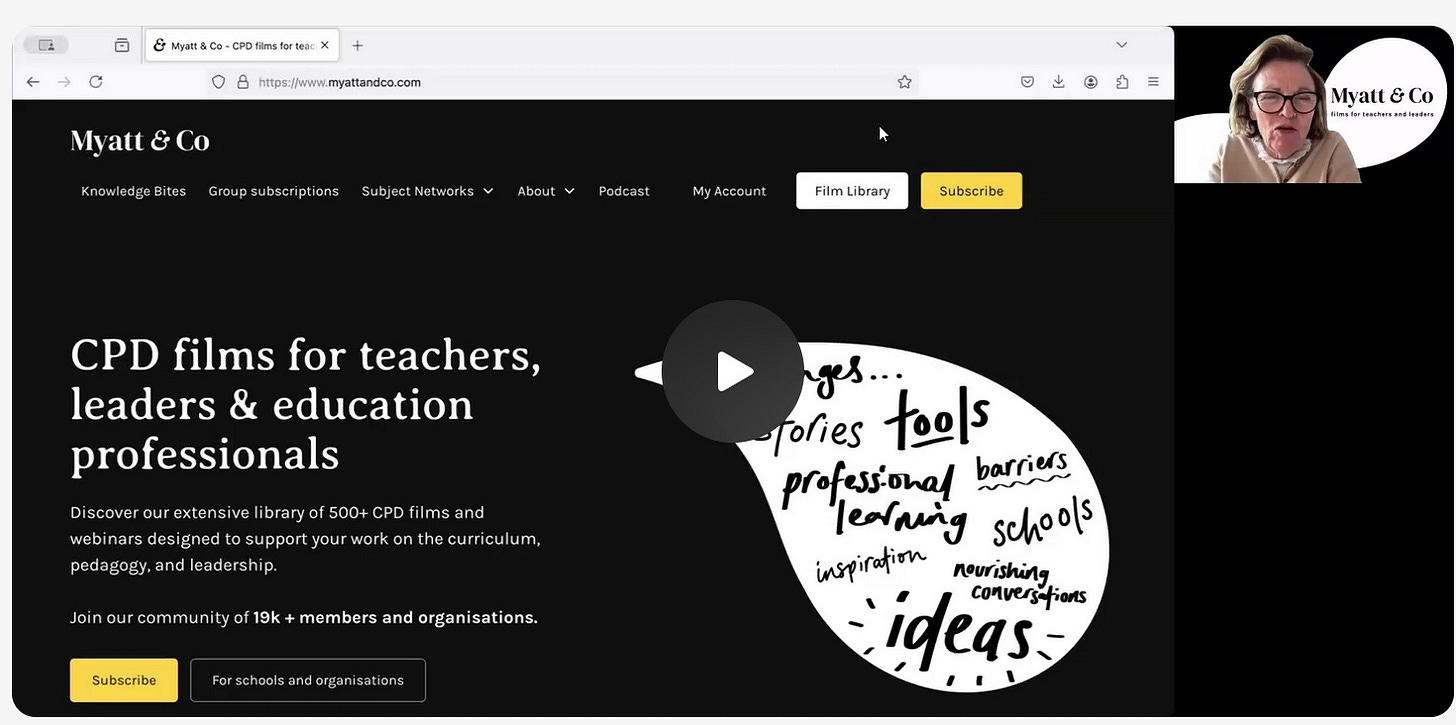Variations on CPD
Well hello there, and welcome to update #082!
I’ve been thinking recently about how professional learning doesn’t need to be heavy duty.
There’s a lovely example of a head who was concerned that his colleagues didn’t have a wide knowledge of children’s literature, beyond a diet of Roald Dahl and David Walliams.
He decided to experiment and see if he could engage his staff with some great children’s literature. He wanted to see if it could be done in a way that would feel as though the CPD was done with them, rather than to them.
When the teachers came into the staff room they were expecting to discuss the usual agenda. Instead, on the staff room table they saw a range of children’s high quality books. The head said:
‘Instead of the usual meeting, we’re going to do something different. If you’d like to choose any book that takes your fancy and spend the next half hour reading it. Then we’ll come back and discuss what you thought of the book you chose.’
What was the result? Well, they were all buzzing! In fact, virtually everyone wanted to take their book home! Why was this? It’s because their curiosity had been provoked. And as we know, curiosity is a big driver for learning.
Instead of this aspect of professional learning being a chore, it was turned into something delightful. It became an invitation to engage with beautiful texts. This in turn meant that pupils would get a wider and richer reading diet.
What about the original staff meeting agenda? It was put into an email!
When I reflect on my own professional learning, I find that curiosity is a significant driver. The best CPD makes me think long after the session ends.
I find myself researching links and resources and considering how I can incorporate new ideas and ways of working into my own practice. And that’s what happened in this case.
In fact one of the best ways I have found is to hear what others have to say about how they develop their curriculum and pedagogy.
I think we can access others’ insights in a number of ways:
1️⃣ In direct conversation with colleagues about how they think about the material they teach and how convey it to their pupils
2️⃣ Reading what others have to say either in blogs, books or posts
3️⃣ Listening or watching what they say either on podcasts or films
Let’s say that one school improvement priority is to support colleagues to improve reading, then Hydeh Fayaz talking about the powerful reading curriculum at St Matthews on Myatt & Co would be helpful to see how it’s planned and delivered in one school.
For a secondary school with a similar priority to improve reading, then learning about how Jennifer Webb approached developing literacy and reading across the departments in her school.
These films, along with over 500 other conversations with brilliant practitioners can be accessed with a low-cost subscription. Over 19k educators are already tapping in to the great insights.
And if you aren’t on Myatt & Co yet, take this quick CPD quiz to see if it might be helpful for your setting’s professional development!
Until next time
Mary


